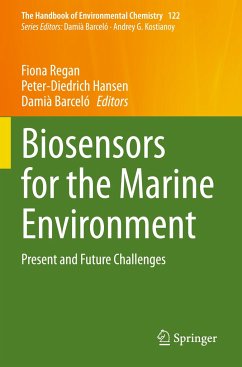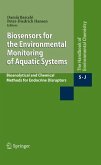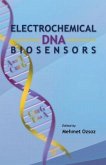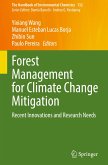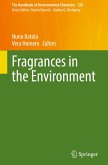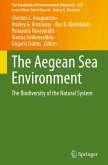Biosensors for the Marine Environment
Present and Future Challenges
Herausgegeben:Regan, Fiona; Hansen, Peter-Diedrich; Barceló, Damià
Biosensors for the Marine Environment
Present and Future Challenges
Herausgegeben:Regan, Fiona; Hansen, Peter-Diedrich; Barceló, Damià
- Broschiertes Buch
- Merkliste
- Auf die Merkliste
- Bewerten Bewerten
- Teilen
- Produkt teilen
- Produkterinnerung
- Produkterinnerung
This book is devoted to the exploration of innovative sensing technologies for marine applications. The book focuses on various novel biosensor designs from nano-biosensors to molecularly imprinted polymers offering a broad perspective for marine biosensors development to deployment challenges. The book aims to target researchers in the area of marine monitoring, sensor developments and deployment of devices in the marine environment.
Andere Kunden interessierten sich auch für
![Biosensors for the Environmental Monitoring of Aquatic Systems Biosensors for the Environmental Monitoring of Aquatic Systems]() Damia Barcelo (Volume ed.) / Peter-Diedrich HansenBiosensors for the Environmental Monitoring of Aquatic Systems154,99 €
Damia Barcelo (Volume ed.) / Peter-Diedrich HansenBiosensors for the Environmental Monitoring of Aquatic Systems154,99 €![Electrochemical DNA Biosensors Electrochemical DNA Biosensors]() Electrochemical DNA Biosensors174,99 €
Electrochemical DNA Biosensors174,99 €![Biosensors Based on Graphene, Graphene Oxide and Graphynes for Early Detection of Cancer Biosensors Based on Graphene, Graphene Oxide and Graphynes for Early Detection of Cancer]() Biosensors Based on Graphene, Graphene Oxide and Graphynes for Early Detection of Cancer153,99 €
Biosensors Based on Graphene, Graphene Oxide and Graphynes for Early Detection of Cancer153,99 €![Forest Management for Climate Change Mitigation Forest Management for Climate Change Mitigation]() Forest Management for Climate Change Mitigation131,99 €
Forest Management for Climate Change Mitigation131,99 €![Fragrances in the Environment Fragrances in the Environment]() Fragrances in the Environment105,99 €
Fragrances in the Environment105,99 €![Noble Metal Nanoparticles Noble Metal Nanoparticles]() Ignác CapekNoble Metal Nanoparticles154,99 €
Ignác CapekNoble Metal Nanoparticles154,99 €![The Aegean Sea Environment The Aegean Sea Environment]() The Aegean Sea Environment154,99 €
The Aegean Sea Environment154,99 €-
-
-
This book is devoted to the exploration of innovative sensing technologies for marine applications. The book focuses on various novel biosensor designs from nano-biosensors to molecularly imprinted polymers offering a broad perspective for marine biosensors development to deployment challenges.
The book aims to target researchers in the area of marine monitoring, sensor developments and deployment of devices in the marine environment.
The book aims to target researchers in the area of marine monitoring, sensor developments and deployment of devices in the marine environment.
Produktdetails
- Produktdetails
- The Handbook of Environmental Chemistry 122
- Verlag: Springer / Springer International Publishing / Springer, Berlin
- Artikelnr. des Verlages: 978-3-031-32003-3
- 2023
- Seitenzahl: 268
- Erscheinungstermin: 4. Juni 2024
- Englisch
- Abmessung: 235mm x 155mm x 14mm
- Gewicht: 460g
- ISBN-13: 9783031320033
- ISBN-10: 3031320034
- Artikelnr.: 70458104
- Herstellerkennzeichnung Die Herstellerinformationen sind derzeit nicht verfügbar.
- The Handbook of Environmental Chemistry 122
- Verlag: Springer / Springer International Publishing / Springer, Berlin
- Artikelnr. des Verlages: 978-3-031-32003-3
- 2023
- Seitenzahl: 268
- Erscheinungstermin: 4. Juni 2024
- Englisch
- Abmessung: 235mm x 155mm x 14mm
- Gewicht: 460g
- ISBN-13: 9783031320033
- ISBN-10: 3031320034
- Artikelnr.: 70458104
- Herstellerkennzeichnung Die Herstellerinformationen sind derzeit nicht verfügbar.
Fiona Regan is founder and Director of the DCU Water Institute and is Full professor in Chemistry at the School of Chemical Sciences in Dublin City University. Fiona's research focuses on analytical chemistry in the field of environmental monitoring and she has special interest in priority and emerging chemicals as well as the establishment of decision support tools for environmental monitoring using novel technologies and data management tools. Her work includes the areas of separations and sensors (including microfluidics, Lab-on-a-disc), materials for sensing and antifouling applications on aquatic deployed systems. Fiona was coordinator of SmartBay Ireland (2010-2016), she is an associate editor with Royal Society of Chemistry's Analytical Methods, a member of the Water4All Scientific and Technological Board, a Chair of the Royal Irish Academy (RIA) Climate Change and Environment committee and Scientific Advisor to AquaWatch, Australia. Peter-Diedrich Hansen is a Full Professor and Departmental Director Technische Universität Berlin, 1990-2009. Head of the chair Ecotoxicology. Director and Professor 1980-1990 in the Institute of Water, Soil and Air Hygiene at the former Federal Health Office (Scientific Director of the Test Site for Environmental Hygiene), Berlin. Dissertation Dr. rer. nat. at the University of Hamburg (1976) and Habilitation (Dr. habil.) at the Technische Universität Berlin (1988). His expertise is in the areas of Ecotoxicology, Bioanalytical and Chemical Methods: Chairman of DIN UA 7 "Subanimal Testing = alternative testing strategies" with 6 subcommittees, Genotoxicity, Immunoassays, Enzymatic Activity and whole cell biosensors, Fish Eggs and Embryos and Endocrine Effects. Effects monitoring (coastal areas and freshwater - artificial streams) and research under microgravity in orbit (ISS). Risk analysis and steering mechanisms. He has published more than 150 peer reviewed publications. Damià Barceló is a Full Professor IDAEA-CSIC, Spain since 2008 and Director of the Catalan Institute for Water Research (ICRA), Girona, Spain, 2016-2020. Full Professor Chair in Biology, College of Science, King Saud University, Riyadh, Saudi Arabia. Distinguished Scientist Fellowship Program (DSFP). Doctor Honoris Causa by the Universities of Ioannina, Greece, in 2014 and more than 1400 publications (source Google Scholar on May 2021, Scopus in parenthesis).
Biosensors for the Marine Environment: Introduction.- Microgravity Changes Membrane Properties and Triggers Bioluminescence in Pyrocystis noctiluca as an Approach for New Biosensor Concepts.- Addressing Ciguatera Risk Using Biosensors for the Detection of Gambierdiscus and Ciguatoxins.- Antibody, Aptamer and Affimer-Based Affinity Tools for Marine Toxin Biosensing.- Environmental DNA as a Tool for Single Species Detection.- Paper-Based Devices for Virus Detection in Water.- Electrochemical MIP Sensors for Environmental Analysis.- Whole-Cell Biosensors and Phagocytosis with Cryo-Conserved Cells in Coastal Areas and in Orbit (ISS) Under Microgravity.- Marine Whole-Cell Biosensing for "Real-Time" Determination of the Ballast Water Treatment Efficiency.- Sensors for Monitoring Faecal Indicator Bacteria in Bathing Waters.- Electrochemical (Bio)sensors for Toxins Control in the Marine Environment.
Biosensors for the Marine Environment: Introduction.- Microgravity Changes Membrane Properties and Triggers Bioluminescence in Pyrocystis noctiluca as an Approach for New Biosensor Concepts.- Addressing Ciguatera Risk Using Biosensors for the Detection of Gambierdiscus and Ciguatoxins.- Antibody, Aptamer and Affimer-Based Affinity Tools for Marine Toxin Biosensing.- Environmental DNA as a Tool for Single Species Detection.- Paper-Based Devices for Virus Detection in Water.- Electrochemical MIP Sensors for Environmental Analysis.- Whole-Cell Biosensors and Phagocytosis with Cryo-Conserved Cells in Coastal Areas and in Orbit (ISS) Under Microgravity.- Marine Whole-Cell Biosensing for "Real-Time" Determination of the Ballast Water Treatment Efficiency.- Sensors for Monitoring Faecal Indicator Bacteria in Bathing Waters.- Electrochemical (Bio)sensors for Toxins Control in the Marine Environment.

